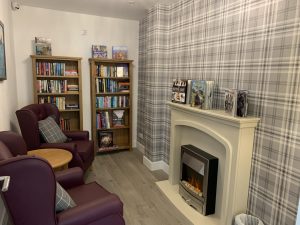What to expect in a care home
Unfortunately, you or someone close to you may have reached a stage in life where performing basic self-care has become difficult. Ageing can come with certain challenges, but it’s important to find appropriate solutions. Whether it is due to dementia or physical frailty, a care home may be the best option to ensure your loved one’s needs are met.
What exactly is a care home?

As we age, it’s natural to need a little extra help with our daily activities. That’s where care homes come in. Care homes are designed to provide compassionate care and support for elderly individuals who need it most. Whether it’s nursing care, personal care, or social activities, care homes are there to help seniors maintain their independence and quality of life. Whether run by private companies, charities, or the government, care homes offer different levels of care depending on each individual’s unique needs. Some even specialise in providing care for those with dementia or cognitive impairments. All in all, care homes are an invaluable resource for elderly individuals who require support and care in their daily lives.
Taking care of a parent with age-related conditions like dementia can be challenging. It’s important to remember that they once cared for you and deserve respect and proper care. However, if you have a job and family to attend to, a care home may be the best option for your loved one.
A care home is not primarily a medical facility, but rather a comfortable living space for elderly individuals in their final years. They receive assistance with daily activities, including bathing, toileting and eating. Most homes also offer a variety of entertainment and social activities to make daily life as enjoyable as possible. It’s natural to wonder what life is like in a care home and what daily life for your loved one will consist of.
Things to expect in a care home

1. Genuine companionship
Ideally, a care home should be a place where you can converse freely with everyone, just as you would in your own home. Imagine a place alive with conversation and good humour, your fellow residents and staff on a first-name basis. Life would be exciting.
A quality care home should strive to create a warm and cheerful atmosphere, much like the kind of environment one would want for themselves. When searching for a care home, it’s important to look for signs of such a positive and homey environment. If the atmosphere seems too formal and gloomy on your initial visit, it could be a warning sign. A good care home should offer genuine companionship and friendly conversations.

2. Different room types
Just as with your home, a care home will typically have different room patterns and structures. You may find standard rooms, executive rooms, and deluxe rooms, and you’ll likely be able to choose the room you want. Every room must be tailored to offer the occupant comfort and maintain a befitting quality of life. Many homes will allow you to customise your room to fit your needs. A great care home encourages individuality.
3. You have the right to complain
If you’re not happy with the care you or your elderly loved one is receiving in the care home, there are steps you can take. Most issues can be resolved by speaking with the care home manager, especially when the complaint is against a staff member. If nothing is done after some time, you can contact the Local Government and Social Care Ombudsman.
Sometimes, the care home may report that your loved one refused care, which was why they got less than the quality of service you expected. Make sure the carer has a written record of when and how your loved one refused the care, and discuss what solutions there could be to help the situation.
4. Wheelchair access
You’ll usually find this in the care home’s brochure or website, but it doesn’t hurt to call them and confirm. Your parent may need a wheelchair to aid mobility even when they’re not physically disabled.
A condition like dementia, especially vascular dementia and frontotemporal dementia, can cause movement problems in seniors. So if that’s the case with your elderly loved one, you want to be sure that they will get all the equipment and accessories they need to aid their quality of life.
5. Lounge, leisure areas, and shop

When looking for a care home, it’s important to ensure an active lifestyle is offered. Seniors shouldn’t be restricted to a sedentary life, as they need to be able to move around and engage in physical activities just as
they would in their own homes. While a golf course isn’t necessary, a communal lounge where residents and caregivers can socialise and relax is a crucial aspect of a quality care home. along with offered activities and other forms of entertainment.
When you go see the care home for the first time, observe the residents:
Do they seem happy? Can you find staff chatting cheerfully with the residents?
Often, you just need to trust your judgement and ask yourself ‘Would I be happy living here?’. If the answer is ‘yes’ then you may have found your care home.




